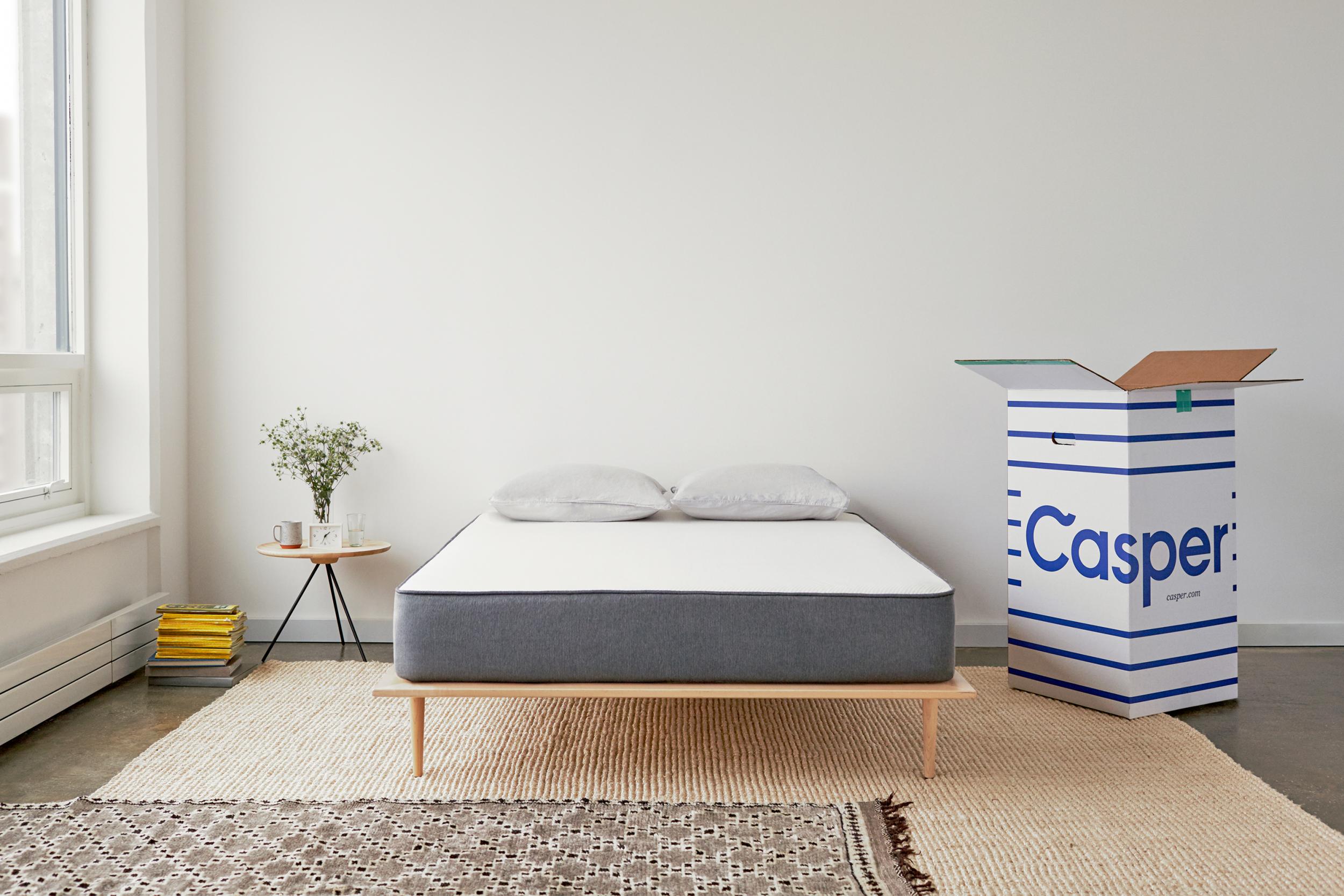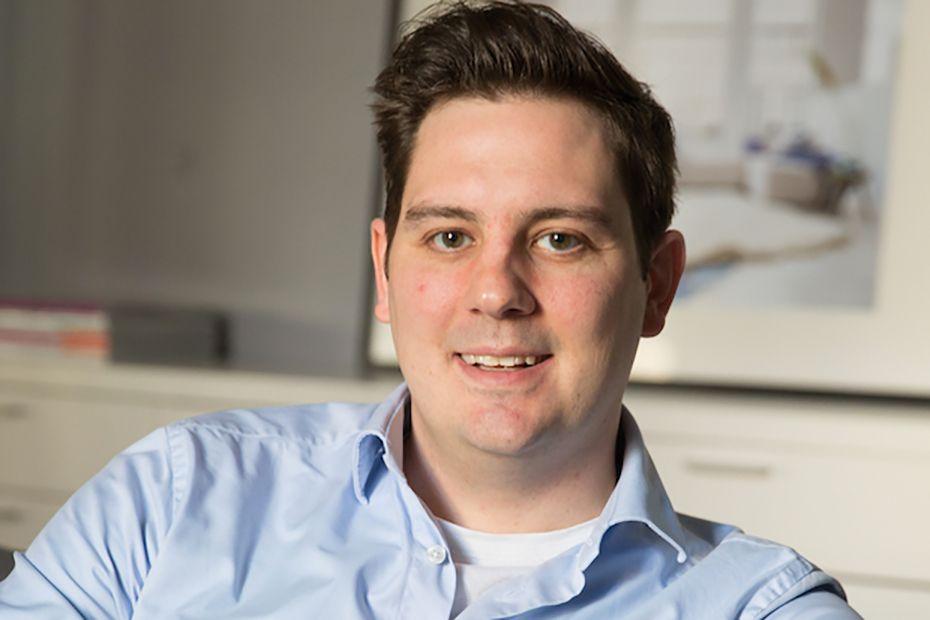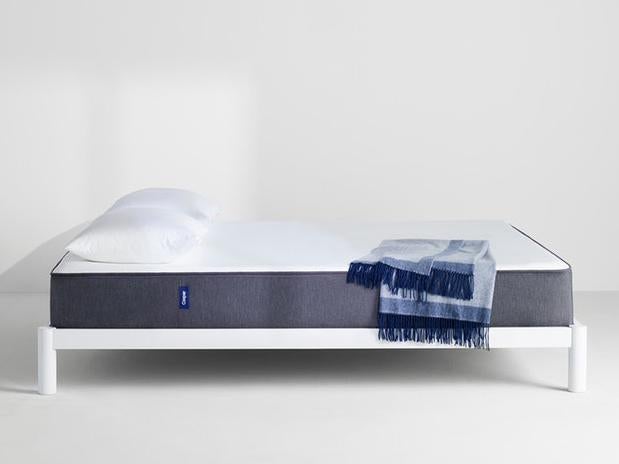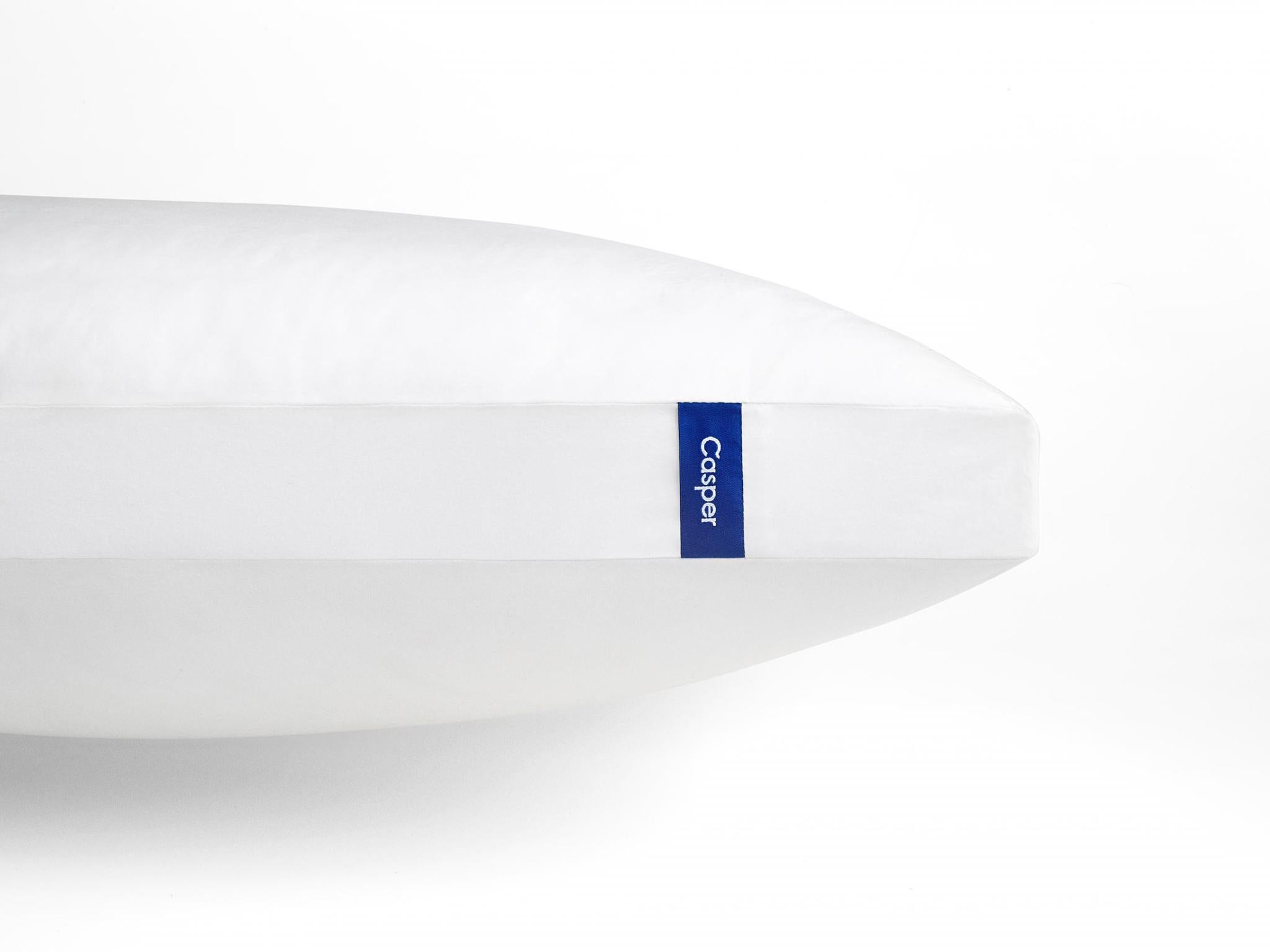How the bed-in-a-box became 'game-changingly comfortable'
'We started by changing the industry in terms of how people buy a mattress,' Casper executive tells The Independent. 'And I think now our mission is to change the way people sleep'

How well do you sleep? There are many factors affecting our slumbers, from tensions at work which we take to bed, to how dark the bedroom is, to how much screen time we've been spending just before we turn in.
One big consideration is the bed we sleep in. If it sags in the middle so much you wake in a position not dissimilar to a mountain climber crawling to a distant summit, you probably need a new mattress.
Casper is a bedding company that was founded in 2014 and reached the UK in August 2016. It was one of the first bed-in-a-box companies. Where traditional mattress stores invite you to lie on different grades of mattress in stores, and then put in an order and await weeks for delivery, Casper mostly exists online. You choose your mattress and it arrives within days, rolled up in a box, squashed thin. Unwrap it and it comes to life in just a few hours.
Then, you have 100 days to decide if it's the mattress for you. If it's not, you can get a full refund.
I visited the company's research lab in San Francisco, an airy space with a staff who are so relaxed and easy-going, I wonder if it's because they know they can take naps whenever they want, all in the name of research, perhaps (though I'm assured they actually work quite hard).
I asked Constantin Eis, MD of Casper in Europe, how many people bought the mattress and then returned it, either on day two or day 99.
"My two hands out of 100 would be more than enough to illustrate that. Our business model would not work if we saw a lot of people sending our product back. We believe that your home environment is the best way to try a mattress out. So, we study the customer deeply to make sure it's a product they will like. This is why we have a different product in the UK than we have in continental Europe, so we can cater for the local taste."

Eis suggests that local tastes have been changing over the years. Americans change their mattresses every eight years, in Germany, 13 years is the average time between changes and in the UK, it's 10 years.
There's now an understanding that a bed is an important purchase to get right. "I think people do care more about their sleep and they start to think of it as an investment into a better life. Because, roughly, you're spending one third of your life on that product. And the share of spending on a mattress is so much under proportion compared to other things which you would use way less. You would spend less time in your car than you would on a mattress. I'm not saying we should raise prices to car prices. But I think that the consumer will think differently and may care more about the mattress in the future than in the past."
Casper makes two different mattresses for the UK, the Casper and the new Casper Essential, which is cheaper. There is also a deluxe mattress called the Wave, currently only available in the United States. The differences between the mattresses are based on the foams used inside each one. In a room at the research studio packed from floor to ceiling with different foams, it's explained to me that there is much more to foam than you might imagine. For instance, memory foam needs to be used correctly. If you use too much, then it can actually hold the body in place, so trying to turn in your sleep can be something of a struggle.
A side-view of a Casper mattress reveals it to be a sandwich of different foams - two in the case of the Essential, four in the Casper and five in the US-only Wave. The fifth layer here is a foam so malleable and soft that when you squeeze it, it feels as responsive as rubbing oil between your fingers. Certainly, in the short time I spent on the Wave mattress, it felt astonishingly, game-changingly comfortable. I hope it will come to the UK.

The layers of the sandwich in each mattress are not even - a more supportive foam is used more in the areas where your torso will lie than at the bottom of the bed, for instance.
In the Casper, the memory foam is the second layer down, to prevent the body being held in place. The top layer is an open-cell layer to keep the sleeper cool. There are slots in the foam to add to the comfort.
Different markets have different regulations. "The UK is a very special case because of what's required in terms of fire retardants. If you consider the full spectrum of foam from dense to non-dense, the fire retardant material will narrow this spectrum. Our job, currently, is to find even better foam layers. So, I do think, especially for the UK, we're not at the end but the beginning."
Eis says that Casper's research has made the mattress suitable for 95 per cent of the population. But when I ask if Casper will one day create different mattresses for different people (rather like current bed manufacturers with conventional stores), he says that's not the way to approach it. "I think the real question is can we make a mattress which works for 95 per cent of people and for years, as they change."
Eis talks about the case of someone whose weight changes significantly because of an injury that means they're no longer doing sports. "The question for us is how to cater for that in a mattress design process designing for a range of changes, so that they can sleep as comfortably this year when they're 15 kilos heavier than they were over the last two years. I think that might be the better approach to the problem.
The products stretch beyond mattresses, such as new bed frames (including one that adjusts to raise your head or feet with one press on a remote control, even adjusting the two sides of the bed separately). There's a cleverly designed duvet cover which has a zip at the base, so it doesn't catch your feet in the night, and carefully placed slits at the top to pull the duvet right to the top. Attention to detail seems to be important.
"Yes, you would find that in every product we do. I think we would never launch a product where we did not solve a clear consumer need or desire, whether that's sheets where the longer side has a colour strip on it so that you don't need to twist your sheet around the bed two or three times, or the mattress protector. We went to an army research facility to understand the best combination of water protection and breathability for this. I think it took us six months to research and develop the mattress protector. We're very thoughtful on how we design products and bring them to market."

The mattress protector is certainly snuggly, and the recent series of product releases also includes a satisfyingly comfortable duvet.
The future may have more radical changes in store.
"I could imagine a world where the mattress does something, reacts to circumstances during the night. We have visions for where the product goes in the next years. We started by changing the industry in terms of how people buy a mattress. And I think now our mission is to change the way people sleep. That caters to more than the mattress. We care a lot about temperature. So, I think one day sensors could be built in, for controlling temperature, humidity and moisture - so far we've only seen a part of that and I think in the future there's more to come."
Join our commenting forum
Join thought-provoking conversations, follow other Independent readers and see their replies
Comments
Bookmark popover
Removed from bookmarks